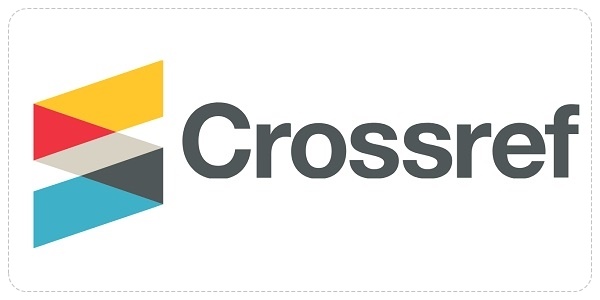KINERJA KEPALA SEKOLAH DI SD UNTUK MEWUJUDKAN "MERDEKA BELAJAR"
Abstract
Abstrak
Posisi kepala sekolah sangat strategis dalam kemajuan dan kualitas sebuah sekolah. Dalam rangka mendapatkan kepala sekolah yang memiliki kompetensi untuk memimpin dan mengelola sekolah secara bertahap pemerintah telah melakukan berbagai perbaikan dalam penyelenggaraan sistem pendidikan nasional. Peraturan baru yang ditetapkan kepala sekolah adalah Permendikbud Nomor 6 Tahun 2018 yang semula diatur dalam Permendikbud nomor 28/2010. Penelitian ini bertujuan untuk mengidentifikasi kinerja kepala sekolah dalam mewujudkan merdeka belajar. Temuan penelitian ini memperoleh sejumlah kinerja pokok pendukung dalam penerapan pembelajaran gratis, seperti kinerja sosial, peningkatan kapasitas guru, komitmen penyelesaian tugas sekolah, dan komunikasi kolegial.
Abstract
The position of principal is very strategic in the progress and quality of a school. In order to obtain a principal who has the competence to lead and manage a school gradually the government has made various improvements in the implementation of the national education system. The new regulation stipulated by the principal is Permendikbud No. 6/2018 which was originally regulated in permendikbud number 28/2010. This research aims to identify the performance of the principal in realizing free learning. The findings of the study obtained a number of supporting principal performance in the application of free learning, such as social performance, teacher capacity building, commitment to completion of school assignments, and collegial communication.
Keywords
Full Text:
PDF (Bahasa Indonesia)References
Akhtar, I., & ur Rehman Cheema, K. (2014). Evaluation of Principal Performance in Public and Private Sector Schools.
Balyer, A., Karatas, H., & Alci, B. (2015). school principals’ roles in establishing collaborative professional learning communities at schools. Procedia-Social and Behavioral Sciences, 197, 1340-1347.
Bredeson, P. V., & Johansson, O. (2000). The school principal’s role in teacher professional development. Journal of in-service education, 26(2), 385-401.
Cohen, J., Mccabe, E. M., Michelli, N. M., & Pickeral, T. (2009). School climate: Research, policy, practice, and teacher education. Teachers college record, 111(1), 180-213.
Hargreaves, D. H. (1995). School culture, school effectiveness and school improvement. School effectiveness and school improvement, 6(1), 23-46.
Jones, M., & Harris, A. (2014). Principals leading successful organisational change: Building social capital through disciplined professional collaboration. Journal of Organizational Change Management. 27(3), 473-485.
Kementrian Pendidikan dan Kebudayaan Indonesia. (2019). Mendikbud Tetapkan Empat Pokok Kebijakan Pendidikan “Merdeka Belajar.” Retrieved: https://www.kemdikbud.go.id/main/blog/2019/12/mendikbud-tetapkan-empat-pokok-kebijakan-pendidikan-merdeka-belajar
Minsih, M., Rusnilawati, R., & Mujahid, I. (2019). Kepemimpinan Kepala Sekolah Dalam Membangun Sekolah Berkualitas Di Sekolah Dasar. Profesi Pendidikan Dasar, 6(1), 29-40.
Mustaghfiroh, S. (2020). Konsep “Merdeka Belajar” Perspektif Aliran Progresivisme John Dewey. Jurnal Studi Guru dan Pembelajaran, 3(1), 141-147.
Ramadania, F., & Aswadi, D. (2020). Blended Learning dalam Merdeka Belajar Teks Eksposisi. Stilistika: Jurnal Bahasa, Sastra, dan Pengajarannya, 5(1), 10-21.
Ross, J. A., & Gray, P. (2006). School leadership and student achievement: The mediating effects of teacher beliefs. Canadian Journal of Education/Revue canadienne de l'éducation, 29(3), 798-822.
Safitri, E., & Djailani, A. R. (2015). Kemampuan manajerial kepala sekolah dalam meningkatkan kinerja guru di MIN Rukoh Banda Aceh. Jurnal Administrasi Pendidikan: Program Pascasarjana Unsyiah, 3(4).
Saleh, M. (2020). Merdeka Belajar di Tengah Pandemi Covid-19. In Prosiding Seminar Nasional Hardiknas (Vol. 1, pp. 51-56).
Sergiovanni T. J. (2006). The school as a moral community. In the principalship: A reflective percpective. 6thEdition. Pearson
Sudaryanto, S., Widayati, W., & Amalia, R. (2020). Konsep Merdeka Belajar-Kampus Merdeka dan Aplikasinya dalam Pendidikan Bahasa (dan Sastra) Indonesia. Kode: Jurnal Bahasa, 9(2).
Supovitz, J., Sirinides, P., & May, H. (2010). How principals and peers influence teaching and learning. Educational Administration Quarterly, 46(1), 31-56.
Tschannen-Moran, M. (2009). Fostering teacher professionalism in schools: The role of leadership orientation and trust. Educational Administration Quarterly, 45(2), 217-247.
Volante, L. (2007). Educational Quality and Accountability in Ontario: Past, Present, and Future. Canadian Canadian journal of educational administration and policy, 17(58), 1-21.
Wilmore, E. (2014). Principal leadership: Applying the new educational leadership constituent council (ELCC) standards. Corwin Press.
Yamin, M., & Syahrir, S. (2020). Pembangunan pendidikan merdeka belajar (telaah metode pembelajaran). Jurnal Ilmiah Mandala Education, 6(1). 126-136.
DOI: https://doi.org/10.17509/pdgia.v18i3.29124
Refbacks
INDEXED BY

This work is licensed under a Creative Commons Attribution-ShareAlike 4.0 International License















